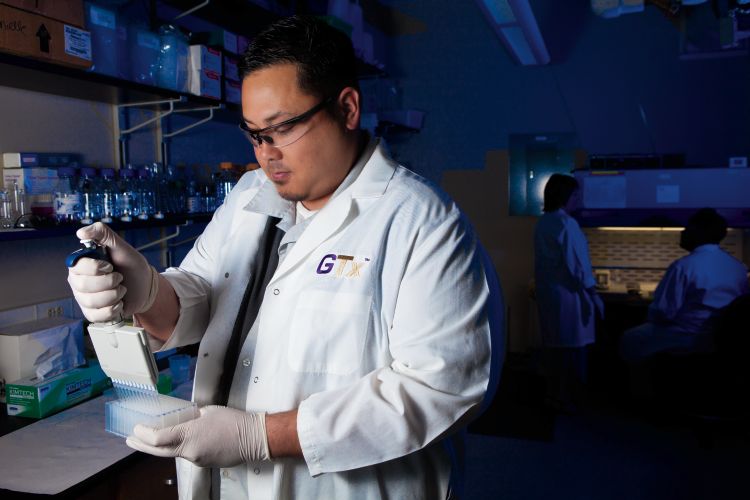Life Sciences Innovation: Tennessee Health Care Shapes The State’s Future
Discover how the Tennessee health-care and medical-device sector is shaping the future of medicine and patient care throughout the state

For Joe Matteo and fellow executives at ProNova Solutions, growing the company’ through a major investment in a huge proton-therapy facility in Blount County – and planning for a major move into Nashville as well – has been the ultimate no-brainer.
As a company with a presence in two spheres, one as a cancer-care provider, the other as a medical-device manufacturer, ProNova’s “greatest strength is our employee base, so we need really talented people, and those folks can go anywhere,” says Matteo, the company’s president. “They want to go to an area that is thriving and growing, that offers good schools, good health care and much more.”
Making Tennessee ProNova’s long-term home was a sound decision for a service company, says Matteo, but also as a way “to attract the best and the brightest minds from around the world.”
Healthy Sector
ProNova is one of numerous companies and institutions throughout Tennessee that are shaping future of health and medicine. The state’s health-care and medical devices cluster is engaged in everything from producing surgical tools to manufacturing pharmaceuticals to researching new nutritional supplements.
Among many indicators of health care’s vibrancy across the Volunteer State, the sector employs more than 335,000 workers, a figure that jumped by 5.1 percent between 2010 and 2014.
Why so buoyant? Credit a richly diverse combination of enterprises: powerhouse research institutions such as Vanderbilt University, the University of Tennessee, Oak Ridge National Laboratory and St. Jude Children’s Research Hospital; thriving global hospital companies such as HCA and Community Health Systems; and a medical-device cluster whose concentrations land well above Southeast and national averages. Those attributes are helping to put Tennessee on the top rung for health-care research, innovation and delivery.
As a driver of economic vitality, the presence of major research institutions and their groundbreaking work continues to spawn innovative new companies.
Treatments invented and developed at St. Jude, for example, have helped push the overall childhood cancer survival rate from 20 percent to more than 80 percent since the hospital opened in 1962, thanks to entertainer Danny Thomas. St. Jude continues to impact the world as a charitable care and research hospital dedicated to finding cures and saving children’s lives.
Among many recent innovations, St. Jude scientists have created a promising second-generation antibiotic to combat bacteria that are a common cause of respiratory and other infections, developed new measurements that reveal differences between stem cells for treating retinal degeneration and embarked on a new era of personalized therapy for some patients with the brain tumor medulloblastoma.
Still Growing Strong
As quickly and steadily as health care has advanced in Tennessee during the past several decades, observers remain bullish that the growth curve will remain steep. Recent investment successes at companies such as Fresenius Medical Care in Knox County, HCA and Community Health Systems (CHS) in Middle Tennessee, and ProNova Solutions in Blount County are adding to the state’s considerable health-care cachet.
The state’s hospital heavyweights are paced by Nashville-based HCA, the first for-profit hospital corporation when it was founded in 1968. HCA today owns and operates 165 hospitals and 115 freestanding surgery centers in 20 states and England, employing 204,000 people. Franklin-based CHS has 206 affiliated hospitals in 29 states with some 31,100 licensed beds.
Fresenius Medical Care is making inroads by locating a dialysis manufacturing facility in the Knoxville area. The world’s leading provider of products and services for patients with chronic kidney failure, Fresenius has a network of 3,421 dialysis clinics in North America, Europe, Latin America, Asia-Pacific and Africa, treating 289,610 dialysis patients worldwide.
“The final determination to locate in the great state of Tennessee was based on this wealth of resources that augmented and leveraged key success factors of our long-term operational planning and execution,” says Steve Marler, Senior Director of Operations for Fresenius Medical Care North America.
For Marler and his colleagues at Fresenius, and for scores of other leaders who are part of Tennessee’s healthy health-care climate throughout the state, one of the secrets to success remains the ability to innovate.
“Innovation in products, therapies and manufacturing techniques have been the norm of the 100-plus-year history at Fresenius,” he says. “We are collectively passionate about our roles to lead in and develop these areas, which in turn continues to improve the lives of our dialysis patients and our ability to serve them. It is exciting to be able to collaborate and partner with key functional experts across the globe to fulfill this responsibility.”



